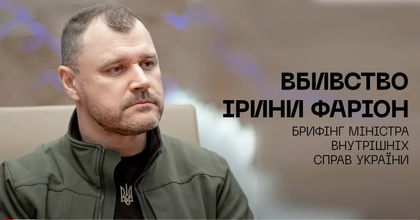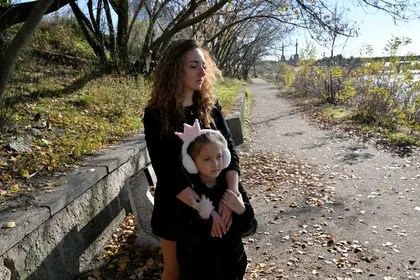Tetiana Kocheva fled her home in Ukraine's northeastern city of Kharkiv after Russia invaded last year, taking refuge in Israel's coastal town of Ashkelon, near Gaza.
Her husband had worked in Israel in the past, and she thought taking their three children there – away from Russian attacks – would guarantee living in peace.
JOIN US ON TELEGRAM
Follow our coverage of the war on the @Kyivpost_official.
But then came Oct. 7, when Hamas attacked Israel, leading to a war that has since killed thousands.
Like several thousand other Ukrainian refugees, Kocheva fled war for a second time.
“If I am killed then at least it's on my native land,” the 39-year-old said.
When Russia attacked Ukraine in February 2022, Kocheva spent ten days hiding in a basement in Kharkiv, which almost fell to the Russian army.
Five months into the invasion, the family left for Israel.
They began a new life in Ashkelon, some 10 kilometers (six miles) from Gaza.
After the surprise attack by Hamas – which killed some 1,200 people – she felt she needed to leave.
“My hands started to shake and I had the same feeling that I did when it all started in our country,” she said.
Israel then launched a military campaign in the Gaza Strip. The Palestinian militant group Hamas has said over 11,000 have since died.
'I needed to come home'
Kocheva slept in a shelter again, recalling endless sirens and explosions.
Then she decided she had to flee.
“When it intensified... I started to panic,” she said.

Farion’s Killer Prepared Disguises, Had Another Victim in His Sights, Interior Minister Says
“I got scared, I realized that I needed to come home.”
The family was evacuated to central Israel, where they stayed several days, before going back to Kharkiv.
War is still a feature of life in Kharkiv – while being firmly under Ukrainian control, the city is regularly hit by Russian attacks. Sirens are still a regular part of life.
But for Kocheva, it was a relief to be back.
“I walk here, it's my native land, my flag, I don't know how to express it, I am happy,” she said.
Kyiv has said that some 4,000 Ukrainians have left Israel since the Hamas attack.
'Exactly the same feeling'
In the capital Kyiv, Anna Lyashko and her eight-year-old daughter Diana were also back from Israel.
They had fled to Israel in the first weeks of Russia's invasion in March last year.
Anna Lyashko and her daughter Diana play in a park on November 3, 2023. Sergei SUPINSKY / AFP
They had been living close to areas of the Kyiv region that fell to Russian forces early in their attack, living without “electricity, water or communication,” the 28-year-old mother said.
“My daughter was very scared and I decided to leave,” she said.
She decided to take her daughter to Israel, where she had a relative.
But when hostilities started in Israel last month, it brought her back to the day Russia invaded Ukraine.
“My first feelings were the same as 24th of February (2022) in Ukraine,” she said.
“Someone called me in the morning and said ‘Anna, war has started,’ it was exactly the same feeling I had in Ukraine.”
She said her daughter had “fear in her eyes” and that she “understood that I could not stay.”
They flew out of Tel Aviv a week later, with the help of the Ukrainian embassy.
The capital city of Kyiv has enjoyed relative quiet over the past two months. On Saturday morning, that quiet was disturbed by Russian missile attacks – taken down by Ukraine’s air defense.
Ukrainians living in frontline cities and towns experience daily Russian attacks that put their lives at greater daily risk than major cities like Kyiv and Kharkiv however.
You can also highlight the text and press Ctrl + Enter







